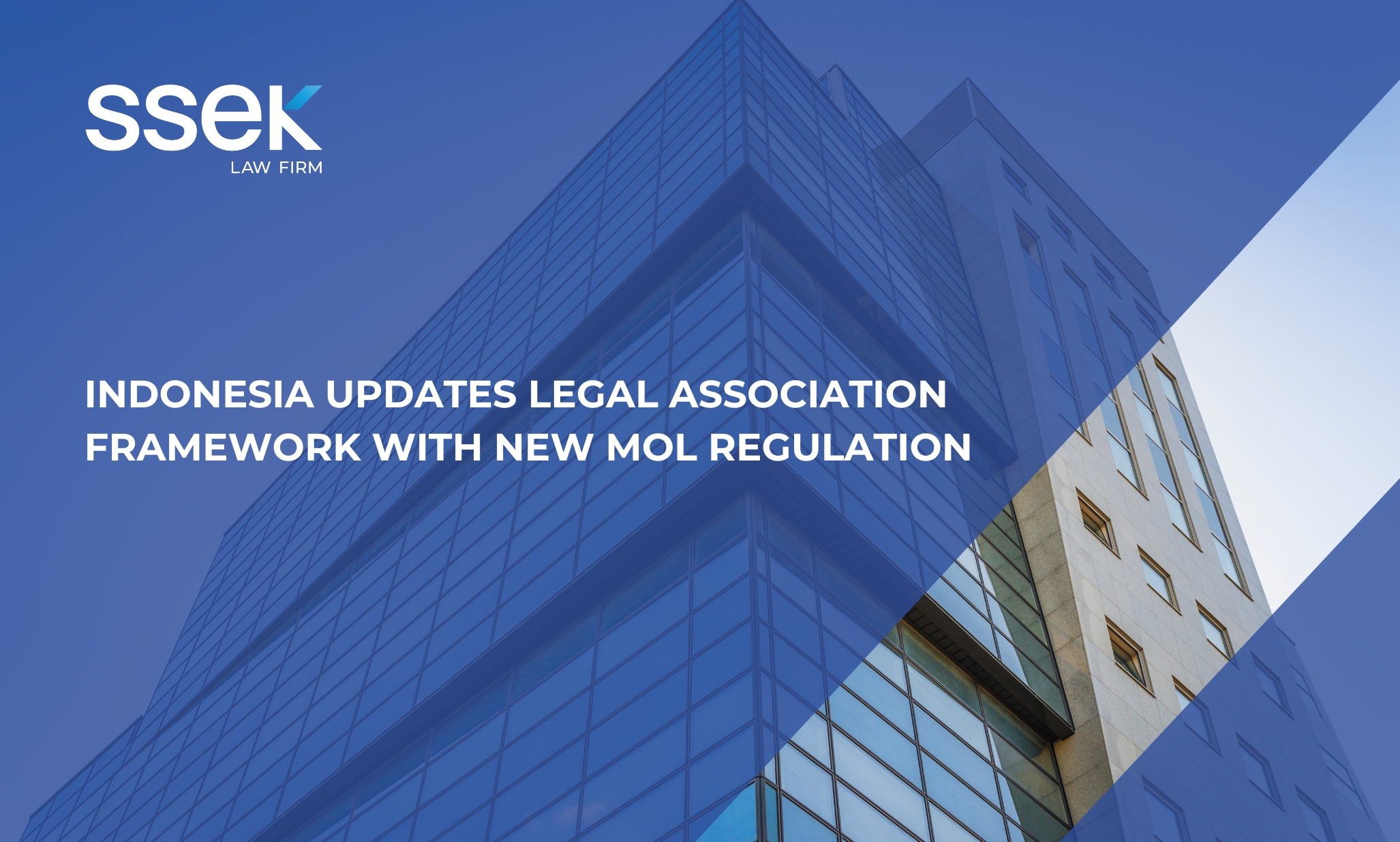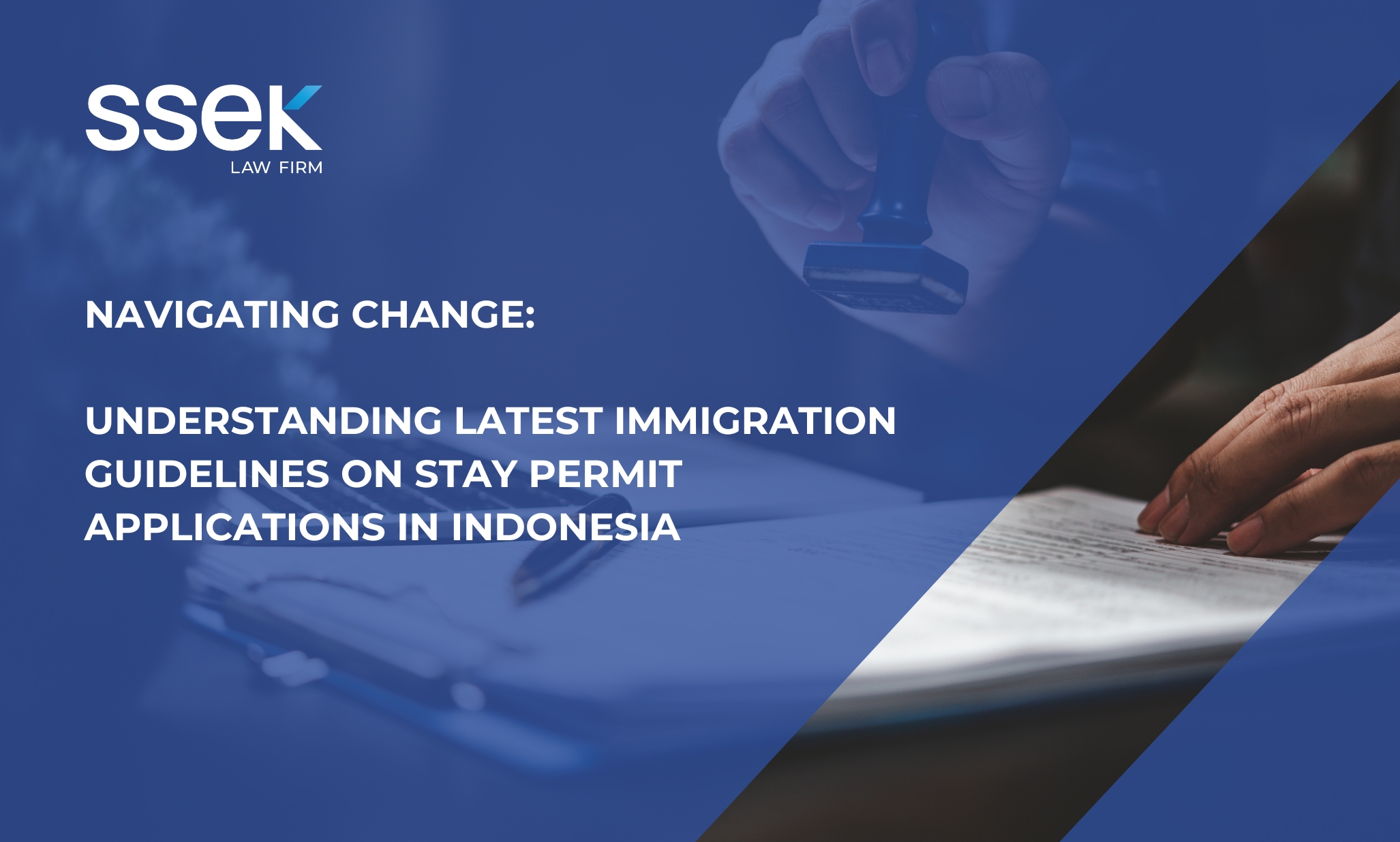

The Indonesian Ministry of Trade (MOT) issued a new regulation on September 21, 2012, amending some of the provisions on the Importer Identification Number (API). The new regulation, MOT Regulation No. 59/M-DAG/PER/9/2012 (MOT Reg 59), amends MOT Regulation No. 27/M-DAG/PER/5/2012 regarding Provisions on Importer Identification Number (MOT Reg 27).
Below is a look at the biggest changes set forth in MOT Reg 59:
- Definition of a special relationship: A relationship between a company holding an API and a company located overseas whereby one party has the capability to control the other party or has significant influence over the other party in line with applicable accounting standards.
- Form of a special relationship: The form of a special relationship is not strictly between an API holder and its affiliates overseas. MOT Reg 59 provides that a special relationship can be represented through a contractual agreement share ownership articles of association an agency or distributorship agreement a loan agreement or a supplier agreement.
- Import of goods that are included in more than one section of the Goods Classification System (GCS) for API-U holders: Holders of a General Importer Identification Number (API-U) can now import goods from more than once section of the GCS if the goods are imported from companies located overseas and the companies have a special relationship with the API-U holder, or if the company holding the API-U is wholly or mostly owned by the state.
- Transfer of goods imported by API-P holders: Under MOT Reg 27, holders of a Producer Importer Identification Number (API-P) could not transfer their imported goods to other parties. MOT Reg 59 now provides that transfers are allowed if the imported goods have been granted an import duty exemption and have been used by the API-P holders themselves for at least two years as of the date of the import duty notification date.
- Criteria to import complementary goods: MOT Reg 59 removes the criteria that for an API-P holder to be eligible to import complementary goods, it must still be incapable of producing the goods itself.
- Stipulations for Importer Producers: MOT Reg 59 provides a validity period for the stipulation as an Importer Producer, with the actual period depending on the recommendation of the relevant technical agency.
- Issuance of API-U and API-P for Capital Investment companies: MOT Reg 59 grants the authority to issue API-P and API-U for capital investment companies of which business licenses are issued under the authority of the government to the Investment Coordinating Board (BKPM).
- Supporting documents for API-U and API-P application: MOT Reg 59 provides that to obtain an API-U to import goods classified in more than one section of the GCS, the applicant must enclose a statement letter regarding the special relationship signed by the relevant API-U holder on a duty stamp, along with evidence of the special relationship that is consularized by the Indonesian Embassy where the overseas suppliers are domiciled.
- Monitoring and evaluation of import policies: The Director General of Foreign Trade is obligated to supervise the import activities of API-U and API-P holders through post audits.
- Issuance of API-U and API-P by the Head of the One-Stop Service Provider (OSSP): MOT Reg 59 provides that the MOT may delegate the authority to issue API-P and API-U to the Head of the OSSP, if an OSSP has been established in the province.
Conclusion
While MOT Reg 59 has addressed most of the concerns that the business sector had with MOT Reg 27, we note that there are still some questions surrounding MOT Reg 59 that could create uncertainty for importers. These include: (i) The absence of provisions regarding documentary evidence of a special relationship for API-P holders who wish to import certain industrial goods, and (ii) an unwritten policy from the MOT regarding special relationships, whereby a contractual relationship shall not be deemed a special relationship if it is not continuous in nature.
About SSEK
SSEK is a leading full-service corporate and commercial law firm based in Jakarta, Indonesia. Since its founding in 1992, SSEK has grown to one of the largest and most highly regarded corporate law firms in Indonesia. SSEK is recognized by independent legal directories including Chambers & Partners, The Legal 500 and Asia Law as a leading law firm in Indonesia across all major practice areas including banking and finance, capital markets, corporate law and mergers and acquisitions, construction and real estates, energy and natural resources, IT and telecommunications, labor and employment, project finance, restructuring and insolvency, and shipping.
This publication is intended for informational purposes only and does not constitute legal advice. Any reliance on the material contained herein is at the user's own risk. You should contact a lawyer in your jurisdiction if you require legal advice. All SSEK publications are copyrighted and may not be reproduced without the express written consent of SSEK.









